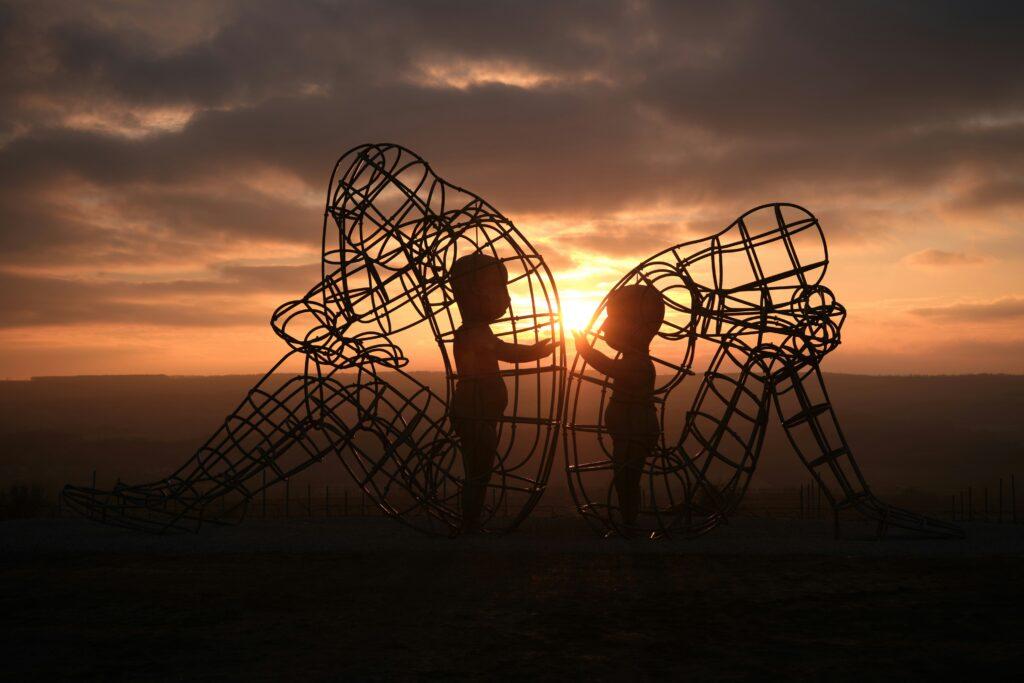How To Embrace Healthy Conflict, According To Polly Young-Eisendrath

Polly Young-Eisendrath, PhD, founder of the Center for Real Dialogue, psychologist, and Jungian analyst, grew up in Akron, Ohio, in a multicultural, working-class family. Her early environment encouraged ambition and achievement, particularly for girls:
“Girls in my neighborhood and in my schools were the smartest, the best, and the most honored of the kids there,” she said. “So I was always in an honors track where there were African Americans, there were Asian Americans, there were people like me who were just sort of a mix of things.”
This foundation shaped her belief in resilience and the importance of striving for success, even in the face of challenges. Yet her childhood was not without struggle. She observed domestic violence and emotional tension in her household, experiences that would later inform her work in dialogue therapy.
“I saw physical violence, she said. “I saw all kinds of emotional violence. I knew that the people around me, all of the adults were good people. They were generous people. But the adults fought with each other and sometimes physically fought over things that seemed to me to be stupid.”
These early experiences sparked a lifelong question: how can people communicate without harming each other, even in high-emotion situations?

From Dialogue Therapy To Real Dialogue
Polly began her professional exploration by developing dialogue therapy for couples in the 1980s, teaching partners to navigate conflict without blame or aggression. Over time, she realized these skills could be applied broadly, beyond couples, to anyone facing emotional tension.
“[Real dialogue] Is the ability to speak to another person when you are emotionally activated, when you are having very strong feelings but you’re able to work with yourself so that you can listen and you can paraphrase and you can discover if you are actually getting what the other person is saying or if you’re just talking to yourself,” she said.
At the heart of Real Dialogue are three essential skills, according to Polly:
- Speaking for yourself, which involves taking responsibility for your own perspective with phrases like, “I see it like this. I hear it this way. How about you?”
- Mindful listening is essential, where you paraphrase and confirm your understanding: “This is what I have understood. Maybe I did not get it. Maybe I did not hear you.”
- Remaining curious is crucial too, as it encourages engagement with others’ experiences, acknowledging that “you recognize you do not know half of it. And other people are having a very different experience of what is going on. So you become interested. And well, what is it like for you?” Polly said.
These skills help people communicate effectively, whether in personal relationships, professional settings, or societal debates.
Conflict As The Main Ingredient Of Love

For Polly, conflict is not something to fear, as it is essential to meaningful connection:
“In order for love to last, whether it is love for a partner, for your parents, for your siblings, or for your children, once they grow up, you have to have the skill to go through conflict without harming them and without harming yourself, or you will not know them as individuals,” she said. “And then they do not feel loved.”
Real Dialogue equips people with the tools to navigate conflict safely, fostering understanding, empathy, and connection, Polly said.
For those new to these practices, she recommends starting with the Center for Real Dialogue’s free online course and podcasts.
“I do believe everybody wants to love and wants to be loved. But they do not know that it takes skill,” she said.
When we take the time to listen mindfully, express ourselves honestly, and stay curious, we can turn conflicts into opportunities for connection, both in our personal lives and at work.






